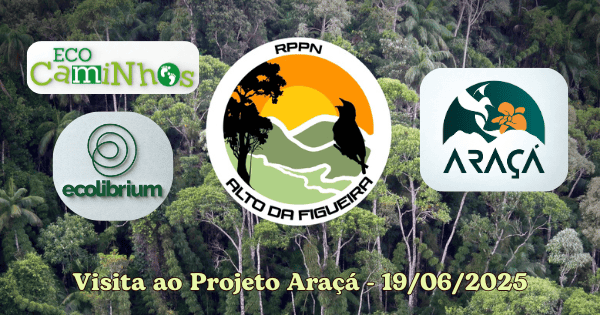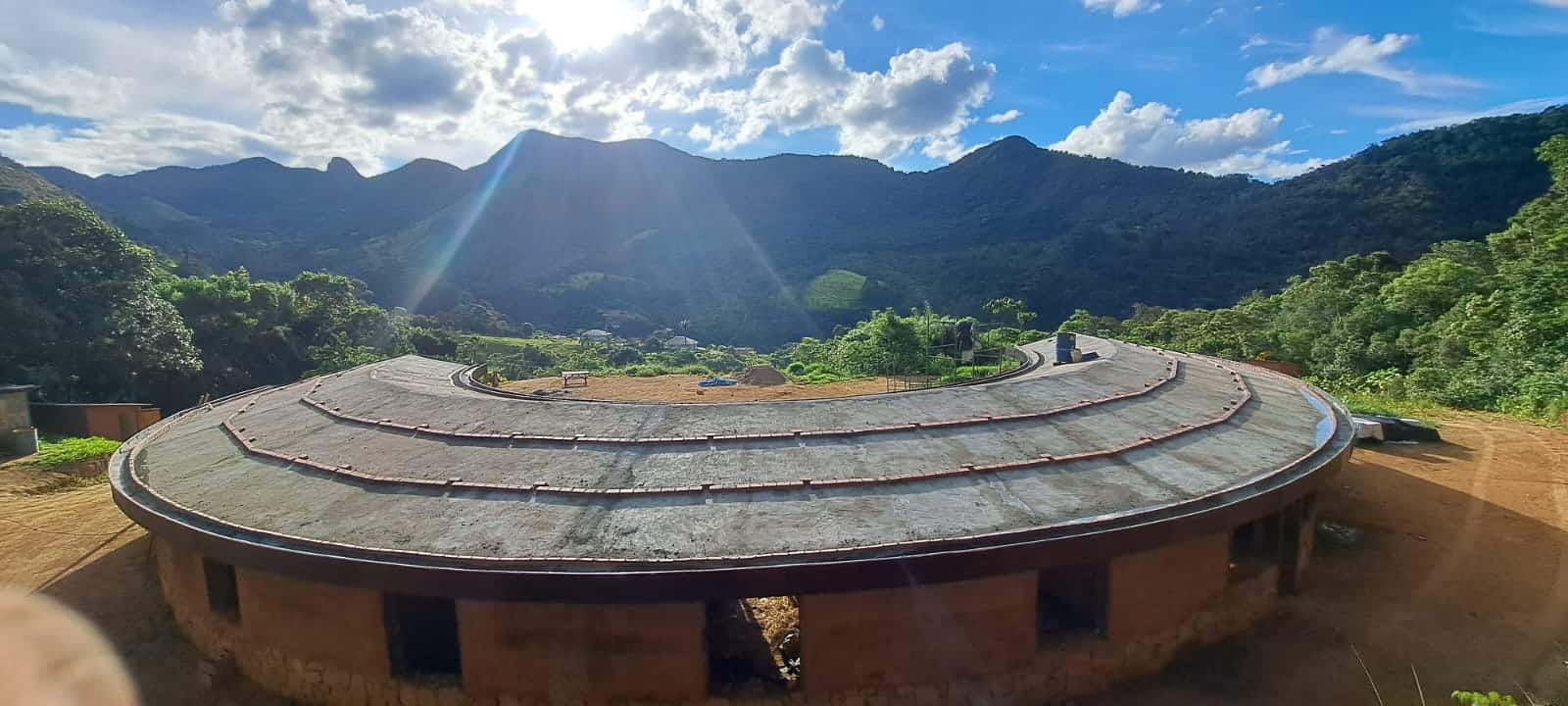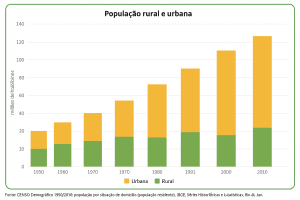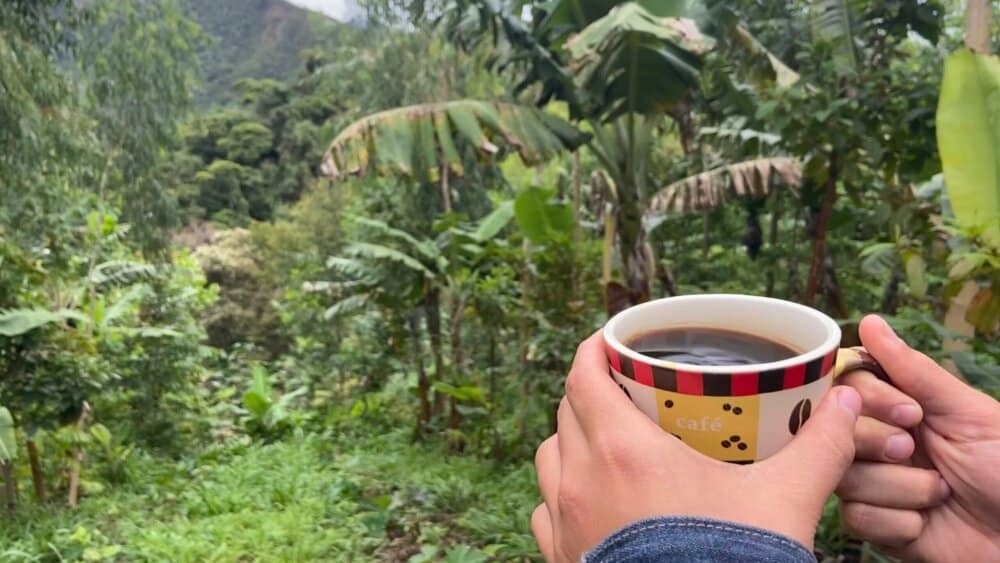Na manhã do dia 19 de junho de 2025, um grupo diverso e entusiasmado partiu da fazenda Eco Caminhos — conhecida por suas práticas de permacultura, agrofloresta e bioconstrução — com destino à RPPN Alto da Figueira, em Nova Friburgo (RJ). A expectativa era grande: trabalhadores da fazenda, voluntários internacionais, membros da Associação Ecolibrium e 12 estudantes das universidades Saint Mary’s e Texas A&M se preparavam para conhecer de perto o trabalho de conservação do Projeto Araçá — uma iniciativa focada em pesquisa científica e reflorestamento da Mata Atlântica no Brasil.
Compreendendo o Projeto Araçá e seu Papel no Reflorestamento da Mata Atlântica
O Projeto Araçá é uma iniciativa visionária idealizada por Alexandre e Anna Antonelli, cofundadores da Fundação Antonelli de Pesquisa e Conservação da Biodiversidade. Sediado na RPPN Alto da Figueira — uma Reserva Particular do Patrimônio Natural com 120 hectares — o projeto está situado em uma das regiões mais biodiversas do Brasil.
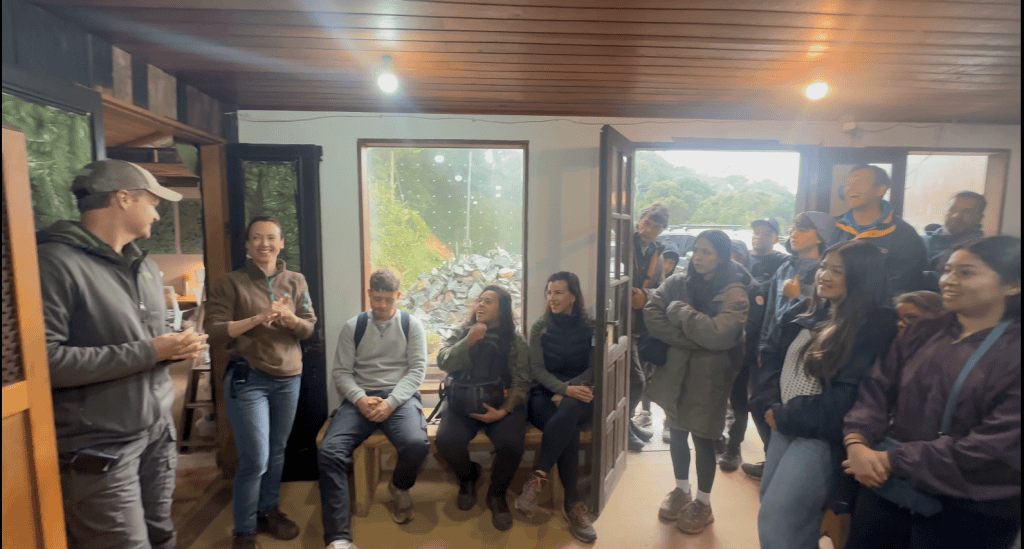
Thomas Berg e Karine Bresolin apresentaram a missão do projeto, destacando um objetivo ainda mais amplo: construir uma rede que conecte ciência, educação, reflorestamento e envolvimento comunitário para regenerar a Mata Atlântica e equilibrar a relação entre humanos e natureza. Os planos incluem a ampliação das áreas protegidas e o apoio às comunidades locais por meio do uso sustentável da terra.
Trilha, Ciência e Encantamento na Mata Atlântica Brasileira
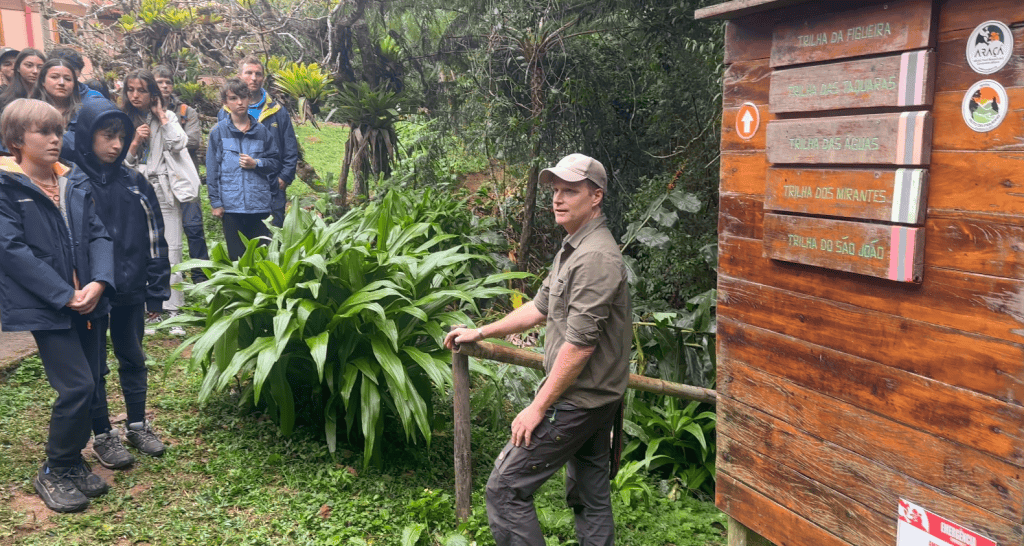
A caminhada pela trilha na floresta foi transformadora. Cercados por vegetação exuberante e canto de pássaros, chegamos a uma majestosa figueira centenária — um ponto-chave para estudos ecológicos.
“Mesmo do chão, dá para perceber quantas espécies ela abriga”, comentou Thomas. A árvore se destacava como símbolo da biodiversidade interconectada, com epífitas, insetos, líquens e aves convivendo em harmonia.
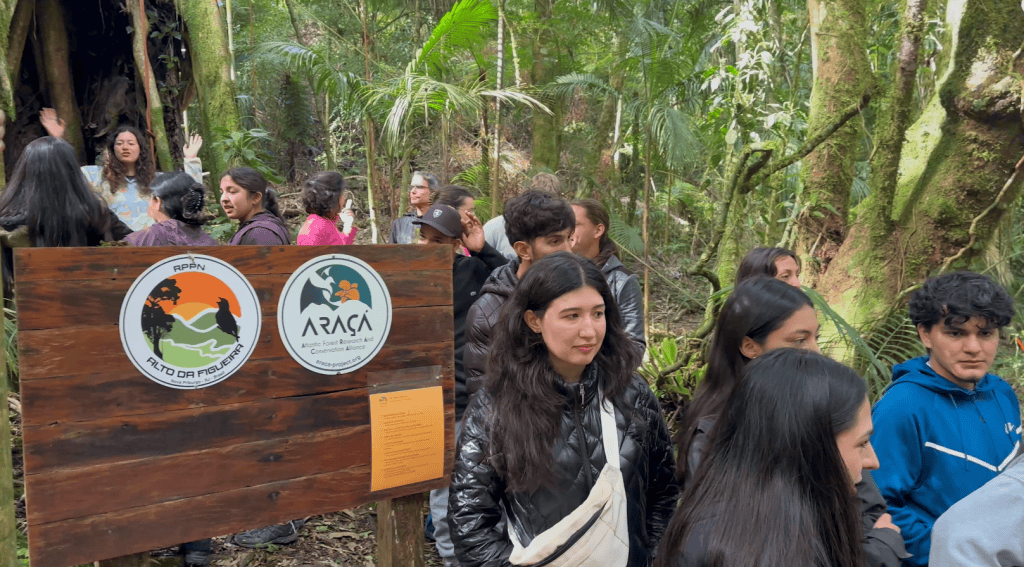
Em seguida, visitamos uma armadilha fotográfica utilizada para monitorar a fauna. Thomas compartilhou histórias sobre os animais locais e ressaltou a importância dessas ferramentas para a pesquisa da biodiversidade. Também abordou os impactos negativos de animais domésticos nas áreas de conservação, um desafio real enfrentado com os terrenos vizinhos.
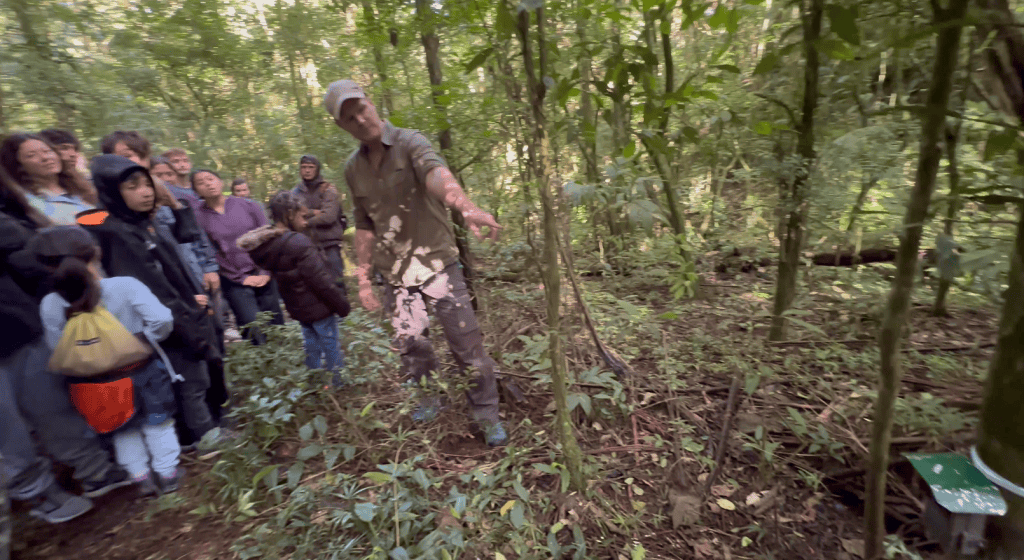
Mais adiante, vimos uma área onde a tecnologia LIDAR foi utilizada para mapeamento 3D. Esse local permite estudos de longo prazo sobre regeneração natural, oferecendo uma visão clara de como a floresta se regenera com o tempo.
Ciência e Sustentabilidade em Ação: Um Centro de Pesquisa em Permacultura e Conservação
Nossa última parada foi o futuro Centro de Pesquisas Araçá, uma estrutura moderna em construção. Quando finalizado, irá receber cientistas de todo o mundo dedicados ao estudo da biodiversidade, conservação, permacultura e mudanças climáticas — com foco na realidade da Mata Atlântica.
Mais do que um laboratório, o centro será um ponto de convergência entre saberes científicos e tradicionais, unidos pelo compromisso com a restauração ecológica.
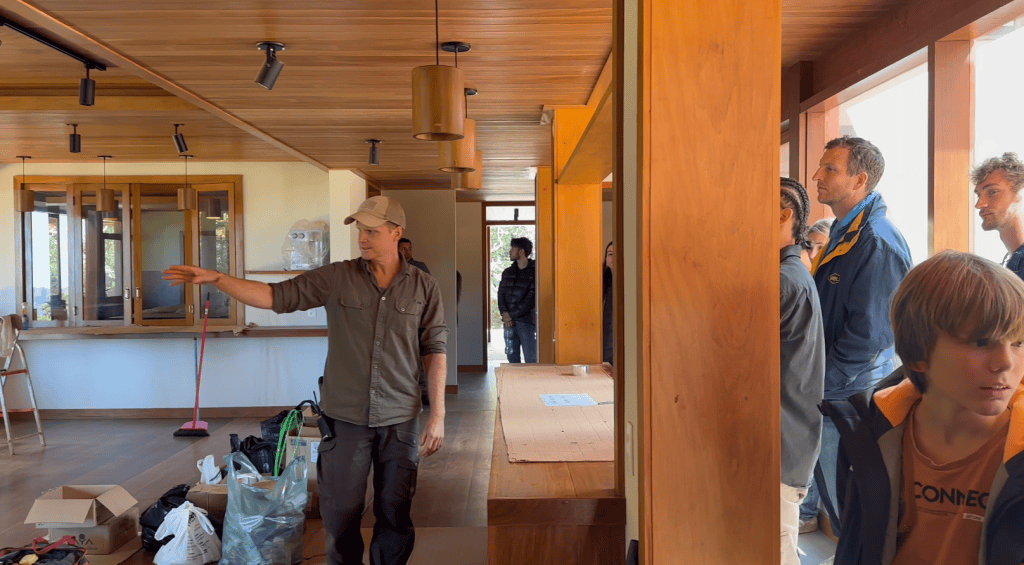
Um Patrimônio Ameaçado, Mas Vivo — e Uma Oportunidade para Voluntários na América do Sul
A Mata Atlântica é um dos biomas mais ricos em biodiversidade do planeta. No entanto, mais de 92% de sua área original foi perdida nos últimos dois séculos, principalmente devido à agricultura, urbanização e extração de madeira. Mesmo assim, o que resta abriga inúmeras espécies endêmicas e ameaçadas.
Projetos como o Araçá trazem esperança. Proteger e restaurar a floresta contribui para o equilíbrio climático, a preservação da biodiversidade e o bem-estar das comunidades locais. É também uma oportunidade única para quem busca experiências significativas de voluntariado na América do Sul.
Um Dia de Inspiração para Permacultores e Voluntários Ecológicos
Para nós da Eco Caminhos, a visita foi mais do que uma atividade educativa — foi um chamado à ação. Voltamos inspirados e mais conscientes do nosso papel na conservação coletiva.
Nosso trabalho diário integra agrofloresta, permacultura, bioconstrução e o engajamento de voluntários no Brasil. Conhecer um projeto alinhado aos nossos valores e fundamentado na ciência reforçou ainda mais nossa missão.
Quer saber mais sobre Agrofloresta? Visite nossa página no site:
https://zieplay.com/br/agrofloresta-agricultura-sintropica/
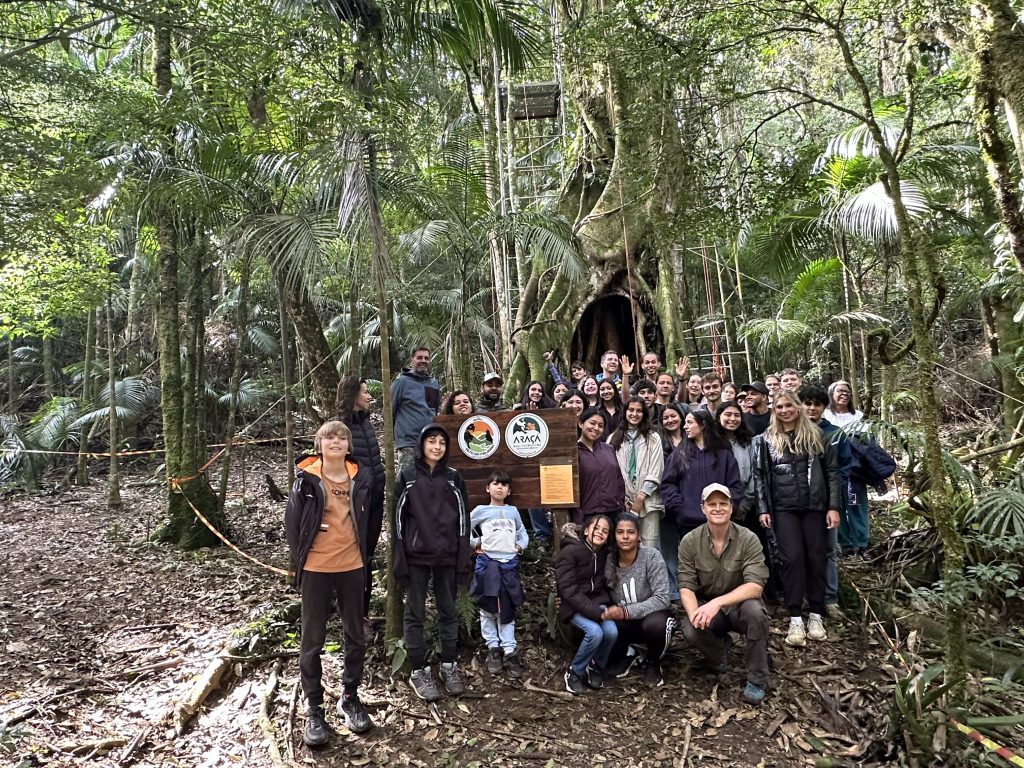
Caminhos Unidos pelo Reflorestamento e pela Agrofloresta
Agradecemos sinceramente a Thomas Berg, Karine Bresolin, à equipe do Projeto Araçá e às Fundações Antonelli. Um agradecimento especial aos estudantes dos EUA — sua presença enriqueceu essa jornada.
Na Eco Caminhos, seguimos comprometidos em contribuir da forma que pudermos para, juntos, proteger, restaurar e celebrar a Mata Atlântica.
Seja parte você também! Venha se tornar um voluntário na Eco Caminhos: https://zieplay.com/br/oportunidades-de-voluntariado/
Conheça mais sobre o Projeto Araçá em https://www.projeto-araca.org/
